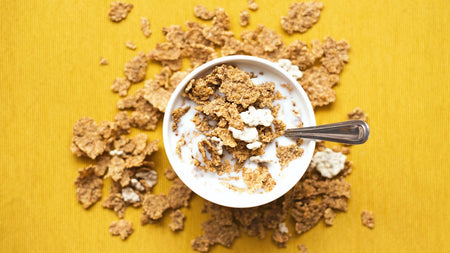What you know and isn't true can hurt you
/

It has been said that what you don’t know can’t hurt you. This is obviously not entirely true. Being ignorant of an underlying medical condition does not give you immunity to its eventual negative impact on your life.
The classic counter is that knowing is half the battle. Again, not entirely true. Imagine a person who just found out that someone they care about has died of COVID. Try telling them that now that they know the person has passed away they should be halfway through their battle with grief.
At least the sentiment resonates more with me. It is true that you can't begin to “get over something” if you don’t know about it. And its hard to take remedial action if you don’t know about a problem. I get it. And broadly speaking I prefer working with people who want to know the truth, so that they can deal with reality as it really is, not as they hope it to be.
But what about those things that lie somewhere between ignorance and knowing. I’m talking about the things we believe that are not true. It’s a sort of "false knowing" if you will. These things are the things you should really be scared of. Not knowing at least brings with it a bit of healthy fear and tentativeness.
I remember standing at the top of Birling Gap on the English south coast. We have all seen those beautiful pictures of the famous white cliffs of Dover. And having stood there I can testify to their magnificence. But I can also tell you, not knowing exactly how close I could safely go to the edge scared the pants off me. I probably stopped a good 2 meters short of where I could have gone. But I just wasn’t sure.
Now contrast this with things you are sure of.
You are sure that when your child has a fever you should try to bring it down. Only, scientifically speaking, that will make them more comfortable but will hinder their body’s ability to fight off any infection they are dealing with.
You are sure that breakfast is the most important meal of the day. Only, scientifically speaking, it’s not. The idea that breakfast is the most important meal of the day comes from John Kellogg, the co-inventor of flaked cereal. Any meal is important in the sense that we all need to eat to survive.
You are sure you could never be a person who exercises. Only, scientifically speaking, you could. Humans are well able to develop new routines and habits, and you are no exception. You think you don’t have the willpower, but you are wrong. It’s true you might not have the willpower right now, but once it’s a habit – something that can happen surprisingly quickly – you will soon realize you don’t need so much willpower to sustain your new routine.
The point is not get you to skip breakfast or deny your child Panado. It is that not everything you believe to be true is true.
Think about how much you’ve learned and discovered in the last 5-10 years. A lot of that learning has been refining misconceptions and unlearning. And this is the point: If I was wrong about a ton of stuff 10 years ago, then surely I am wrong about a ton of stuff right now.
So how do we respond to this realization? By becoming intellectually humble. Developing our ability to think critically. Looking for ways to understand things from first principle. Thinking in probabilities instead of absolutes. Doing the hard work required to have an opinion. And then having thoughtful opinions that we hold loosely.
Someone tells you that breakfast is the most important meal of the day? Okay – our response should be: “That’s interesting. Who said that? What did they base it on? Was it based on peer reviewed and published research? Have the experiments been reproduced? Did the research say why it’s more important than other meals? Did it say what happens when you skip breakfast? Did they indicate any benefits of skipping breakfast?”
You so you become someone who looks for nuance, looks for cause and effect and looks for understanding... not just knowing.
